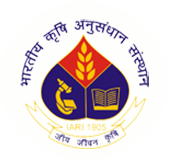Climate change in developing countries : results from the Netherlands Climate Change Studies Assistance Programme / edited by M.A. van Drunen, R. Lasage and C. Dorland, Institute for Environmental Studies, Vrije Universiteit, Amsterdam, The Netherlands.
Material type: TextPublisher: Wallingford, Oxfordshire, UK : CABI, 2006Copyright date: 2006Description: 1 online resource (x, 190 pages) : illustrations, maps, chartsContent type:
TextPublisher: Wallingford, Oxfordshire, UK : CABI, 2006Copyright date: 2006Description: 1 online resource (x, 190 pages) : illustrations, maps, chartsContent type: - text
- computer
- online resource
- Climatic changes -- Developing countries
- Climatic changes -- Government policy -- Developing countries
- Extension and Advisory Work
- Policy and Planning
- Aid, (New March 2000)
- Meteorology and Climate
- Social Psychology and Social Anthropology, (New March 2000)
- Climate
- Climatic change
- Development aid
- Diffusion of information
- Environmental policy
- Extension
- Social participation
- CC200
- EE120
- EE125
- PP500
- UU485
- 551.69172/4 23
- QC981.8.C5 C511413 2006eb
This book provides a comprehensive information source on The Netherlands Climatic Change Studies Assistance Programme (NCCSAP) and describes the achievements and experiences in the countries involved, i.e., Bolivia, Colombia, Ecuador, Egypt, Ghana, Kazakhstan, Mali, Mongolia, Senegal, Suriname, Vietnam, Yemen and Zimbabwe. The NCCSAP was launched in 1996 and aims to help developing countries to prepare their National Communications and to undertake capacity building, education and training activities. This book also aims to provide valuable input to the Intergovernmental Panel on Climatic Change Fourth Assessment Report. Four sections are included in the book, viz., introduction and methodology; country experiences and highlights; cross-country syntheses; and evaluation, lessons learned and outlook. The first section provides a general introduction to the NCCSAP and presents summaries of the methodologies used in the studies. Section 2 is the core of the book wherein representatives of the countries have summarized one of their studies and reflected on the strengths and weaknesses of the approach they adopted. The third section presents a cross-country synthesis for each of the sectors assessed in the countries. It also provides a cross-country analysis of the National Communications. The last section evaluates the activities in the programme in terms of content and process. Topics addressed include capacity building in the participating countries, coordination and programme management, scientific quality of studies, policy relevance of activities, contribution to climate policy development, contribution to awareness raising, donor activities and policy, etc. Experiences and lessons learned are identified and discussed. Furthermore, recommendations for future activities are discussed.
Includes bibliographical references (pages 182-186) and index.
Introduction and NCCSAP methodology -- Country experiences and highlights -- Cross-country syntheses -- Evaluation, lessons learned and outlook.
Access limited to subscribing institution.
Also available in print format.
Title from PDF title page (viewed August 15, 2013).


There are no comments on this title.